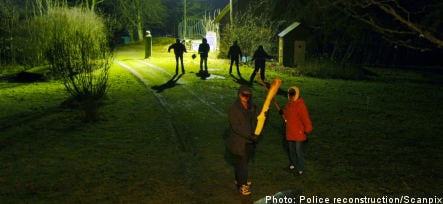According to the appeals court judgment, the man will not be punished, but is liable for paying damages to the boys’ families.
In its ruling, the Court of Appeals for Blekinge and Skåne said that, under normal circumstances, the man would have been sent to prison for his acts.
However, prison was not a possibility in this case because the man suffered from a serious, acute, mental disorder at the time of the shootings.
As the man is not currently in need of mandatory mental health care, the court saw no need to sentence him to time in a mental health facility.
Instead, he has been ordered to pay 181,800 kronor ($22,000) in damages to the families of the boys.
The 51-year-old had been charged for shooting two boys on his farm on the outskirts of the small town in Blekinge. One of the boys, aged 15, died from his injuries, while the other, aged 17, was hospitalized with serious injuries.
It was back on the night of October 6th, 2007 when the boys, along with four other youths, entered the man’s farm armed with weapons.
The 51-year-old’s family had been subjected to threats and taunts from some of the teens for nearly two years prior to the shooting, although not all of the boys at the farm that night had been involved in the previous harassment.
In May, the Blekinge District Court acquitted the father of all charge because of what the court saw as a lack of evidence proving that the man was conscious of what he was doing.
The court of appeals agreed with the district court’s version of events and what took place on the farm, but found that the man was in fact sufficiently aware of his actions.
As a result, said the court, it cannot be ruled out that the man wasn’t acting with intent, in the judicial sense of the word.
The act which caused the death of the 15-year-old boy was classified as manslaughter. In the case of the other boy, the court didn’t believe that the man had the intent to kill, and as a result classified the act as serious assault.
Lead prosecutor Tommy Clevenhult appealed the district court ruling, and the appeals court hearings concluded on October 20th.
Clevenhult argued for a long prison sentence for the 51-year-old, who he believed was guilty of murder and attempted murder, or manslaughter and attempted manslaughter.
The May acquittal of the man by the district court generated a great deal of debate among legal experts in Sweden and within society at large.
While many sympathized with the plight of the 51-year-old father and his attempts to protect his family, others were upset that his acts had gone completely unpunished.
Most legal experts agree that the issues surrounding the case are so compelling and unusual that the case will likely be heard by the Supreme Court.



 Please whitelist us to continue reading.
Please whitelist us to continue reading.